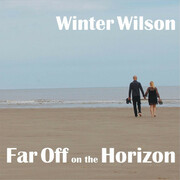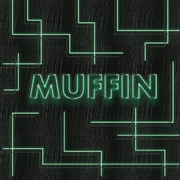New York, NY (Top40 Charts) "The
Lost Brothers harmonies are to die for, as near as a duo have got to the mastery of The Everlys and The Louvin Brothers' tender close harmony singing that I've heard anywhere near these shores." Richard Hawley
There is something special about two musicians in unison. Solo artists bear the brunt of pretty much everything - be it success or failure, joy or misery, it is all on their shoulders. Groups, meanwhile, are mostly perceived as ideal examples of democracy, when the reality is that they are governed by a benign dictator (if lucky) or a cruel despot (if not). Duos, on the other hand, are clearly in tune (and harmony) with themselves and each other.
As if proof were needed, take Oisin Leech and Mark McCausland as the perfect example. Having had previous lives in major label rock acts (respectively, The 747s and The Basement), the two Irish songwriters and musicians first met in 2007 after their bands had slowly slipped off the radar. "We both found ourselves at house parties in Liverpool," recalls Oisin, "and discovered that we had the same musical tastes. We started writing songs together for fun - no strategies, no game plan."
The musicians' instinctive gravitational pull presented them with the 'Lost Brothers' tag, but the name quickly stuck. Indeed, as the songs began to develop, the name started to make even more sense: the music was knocking on doors looking for a home, while the delivery of the songs was hushed to the point where you had to listen very carefully for the beauty of (and melancholy in) them.
The past ten years of The
Lost Brothers has disappeared in the blink of an eyelid. Their 2008 debut album, Trails Of The Lonely, was produced in Portland, Oregon, by Mike Coykendall.(collaborations include M Ward, She & Him, Richmond Fontaine, Beth Orton, Bright Eyes), Coykendall set The
Lost Brothers on their singular path.
For every subsequent Lost Brothers' album (2011's So Long John Fante, 2012's The Passing Of The Night, 2014's New Songs Of Dawn And Dust), attaining the "magic" has been key to its end result. Rehearsing songs to within an inch of their lives prior to heading into a studio - and making sure there are more than enough good ones - has also been pivotal.
So it is with The Lost Brothers' fifth album, Halfway Towards A Healing. Recorded in Tucson, Arizona, at the perfectly titled Dust and Stone Studios (operated and owned by producer Gabriel Sullivan and overseen by Giant Sand linchpin, Howe Gelb), the album is another step on the right road.
Over twelve tracks, location and emotion are softly suggested. From opening song, Echoes In The Wind, to closing spoken word track, The Ballad Of A Lost
Brother (via the instrumental cantina hymn, Reigns Of Ruin, the fragile finger-picking beauty of More Than I Can Comprehend, and the delicate strum of Nothing's Going To Change Me Now), the songs reach out like fingers across a warm night to calm a troubled brow. The lyrics match the intimate, tender moods.
'I called your name, I called your number. Through the rain, through the thunder. Why turn away, from your man again', queries Oisin (in More Than I Can Comprehend). Through these, and within other songs of bruised heartache and brushed sentiments, there is a fraught sense of people at the end of their tether. The lyrics are, agree Oisin and Mark, much more direct than on previous albums.
"The songs that eventually make it onto our records are sometimes the ones we write quickly," reveals Oisin. Take, More Than I Can Comprehend, one of three songs co-written with Glen Hansard. "You can't get more direct than that one," states Oisin. "We have had a tendency in the past to be quite abstract with lyrics, but Glen suggested we go straight for the jugular."
Another challenge and stimulus was Howe Gelb's production methods. "He would pick us up in the morning," recounts Mark, "and take us out into the desert. We'd walk for hours, then he'd drop us back at the studio. We'd go through songs with studio engineer Gabriel Sullivan, then Howe would meet us at the end of the day, listen to what we'd done and work on the tracks. All those trips into the desert were to get the environment into our system." Gelb himself calls the finished album, "a stunning masterpiece... there shall be babies made throughout the darkened planet via this music."
"Many of our albums have been quite desolate," admits Oisin, "but this one has tiny slivers of hope. We've been challenged, and that has made the songs richer. We have definitely polished the gloom a bit! Weirdly, it's our most forward-thinking record."























